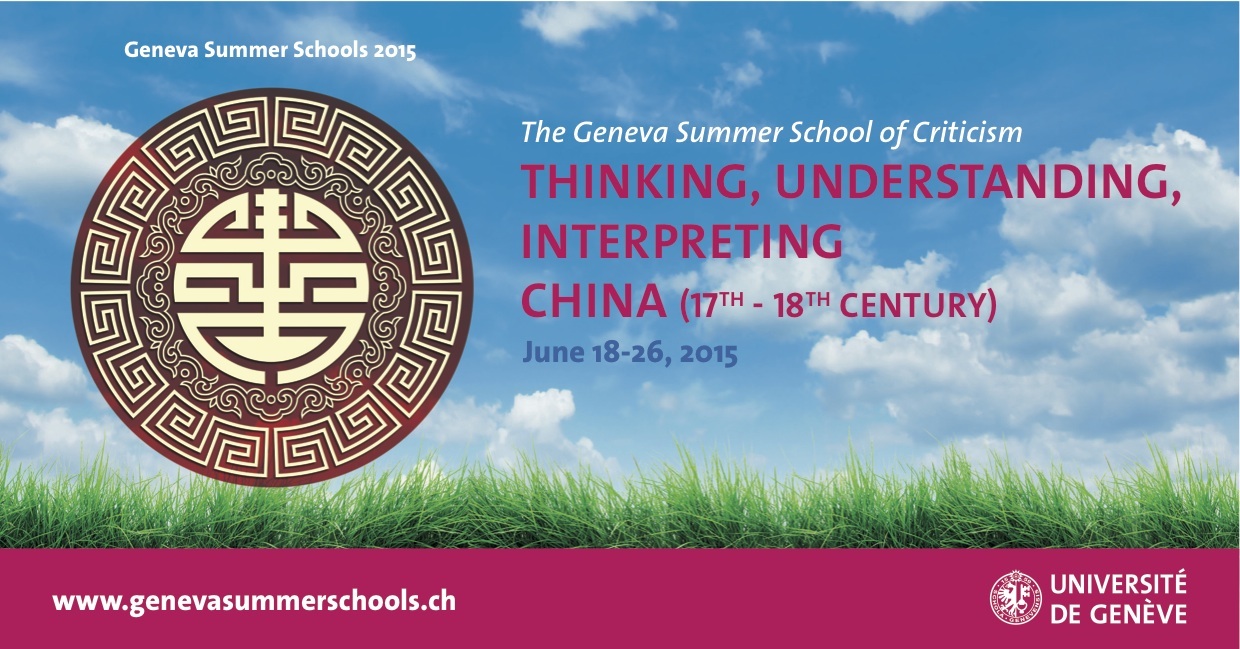
June 18 - June 26, 2015
Some travel & housing scholarships are available for this new summer school. To be eligible candidates must already hold a Master's degree. Apply online!
Our fascination for China has a history; our own history. If we wish to better understand our present, we need to be attentive to this history. Blaise Pascal’s observations are precious. In a crossed-out fragment of the Pensées, he asks: “Which is the more credible of the two, Moses or China?” On the one side the lawgiver and central figure of monotheism; on the other, China, vast space of thought where the imaginary of otherness is projected. Both are overwhelming: they challenge our understanding. Rather than diminishing this challenge, Pascal undertakes it frontally : “It is not a question of seeing this summarily. I tell you there is in it something to blind, and something to enlighten. By this one word I destroy all your reasoning. ‘But China obscures’, say you; and I answer, ‘China obscures, but there is clearness to be found; seek it.’ […] We must then see this in detail; we must put the papers on the table.” We wish to follow Pascal’s injunction: we shall refuse to see China and its mirrors summarily, and examine the ways in which it blinds and enlightens. Clearness of China and of European Enlightenment? We must see this in detail; we must put the papers on the table.
It is these papers that we will study, in order to instruct a case: what are the images of China that Europe coins during the 17th and 18th centuries? Of what brightness China shines, and what shimmers are reflected on the European Enlightenment? What part of this light-game remains in the shadow? What was the reception of European Enlightenment by China? How did the patterns of clarification got woven and set apart?
We thus wish to observe the ways in which we have tried to think, to understand and to interpret China. We will first draw the history of a space of exchanges, that is a workshop of knowledge as well. Its roots are well known: they belong to the Jesuit Missions in China: Father Parrenin, Father Kircher, Father Schall, Father Foucquet and Father du Halde especially, who took more than thirty years to write his General History of China Containing a Geographical, Historical, Chronological, Political and Physical Description of the Empire of China, Chinese-Tartary. (The third volume contains translations of literary texts, poetry and Chinese theatre that Voltaire greatly appreciated). The age and immensity of China, the strength of its institutions, are such that the otherness is no longer the same as with the savages or the barbarians; it is the otherness of civilisation itself. The missionaries that disembark in China will obey to the rites and requirements of the political world and culture they find. They will wear Chinese clothes, learn the Chinese language, read the Chinese Classics. The world they discover is a world of high culture. We will have to enquire about the dreams and fantasies on China, for they are not only the imaginary opposites of the nightmares of European monotheism (Voltaire). We will also need to analyse how China became a model for both philosophy (Leibniz), politics (Montesquieu), and measure the effects of this model on the arts.
It has been a long time since China has awaken. The wakening of Europe took its time. We shall examine these delaying forces that explains in some ways the astonishment of the contemporary occidental world.
*****
La fascination pour la Chine a une histoire : la nôtre. Il faut se montrer attentif à cette histoire pour mieux comprendre notre présent. Les indications de Pascal sont précieuses. Dans un fragment raturé des Pensées, il demande : « Lequel est le plus croyable des deux, Moïse ou la Chine ? » D’un côté la grande figure du monothéisme et l’instituteur d’un peuple, de l’autre la Chine, grand espace de pensée où projeter l’imaginaire des différences. L’un et l’autre sont incroyables : ils défient notre entendement. Au lieu de réduire ce défi, Pascal se propose de le creuser par l’étude : « Il n’est pas question de voir cela en gros ; je vous dis qu’il y a de quoi aveugler et de quoi éclairer. Par ce mot seul je ruine tous vos raisonnements ; mais la Chine obscurcit, dites‑vous. Et je réponds : la Chine obscurcit, mais il y a clarté à trouver. Cherchez‑la. (…) Il faut donc voir cela en détail. Il faut mettre papiers sur table ». On se propose donc de suivre l’injonction pascalienne : refuser de voir la Chine et ses miroirs en gros, étudier la manière dont elle aveugle et éclaire. Clarté de la Chine et Lumières européennes ? Il faut voir cela en détail et mettre papiers sur tables.
C’est donc ces papiers qu’on se propose d’étudier pour instruire un dossier : quelles sont les images de la Chine construites par l’Europe aux XVIIe et XVIIIe siècles ? Quelle est la clarté que la Chine projette sur les Lumières européennes ? Quelle est la part d’ombre que ce jeu de reflets produit ? Mais aussi : quelle fut la réception chinoise des Lumières européennes ? Comment s’entrelacèrent et se dissocièrent des modèles de clarification ?
On se propose donc d’étudier la manière dont on a tenté de penser, de comprendre et d’interpréter la Chine. Il faudra d’abord faire l’histoire d’un espace d’échanges qui est aussi celui de la fabrique de savoirs. Les sources de son information sont bien connues. Elles viennent des pères jésuites et de leurs missionnaires en Chine : le P. Parrenin, le P. Kircher, le P. Schall, le P. Foucquet et surtout le P. du Halde qui prépara trente ans durant sa Description géographique, historique, chronologique, politique et physique de l’empire de la Chine et de la Tartarie Chinoise. (Le tome III comporte des traductions de textes littéraires, de la poésie et du théâtre chinois. Voltaire s’en délecta). L’immensité et l’ancienneté de la Chine, la force de ses institutions sont telles qu’on a affaire à un autre dont l’altérité n’est pas celle des barbares ou des sauvages, mais de la civilisation elle-même. Les missionnaires qui débarquent en Chine se soumettent aux rites et aux exigences de la culture et du monde politique chinois. Il faudra étudier les rêves de Chine, qui ne sont pas seulement les envers imaginaires des cauchemars de l’Europe monothéiste (Voltaire), il faudra considérer aussi les modèles chinois pour la philosophie (Leibniz) et pour la politique (Montesquieu). Il faudra se pencher sur l’effet de la Chine sur les arts.
Il y a bien longtemps que la Chine s’est réveillée. L’éveil de l’Europe fut tardif. On interrogera ces effets retard qui expliquent en partie l’étonnement du monde occidental contemporain.
Course Assistant: Doctor Fabrice Brandli, University of Geneva
Speakers (to be confirmed)
The course will be taught by a mix of eminent scholars, from both China and Occidental universities, whose speciality is the interaction between China and Europe between 16th and 18th century.
In particular, faculty will include professors from the University of Geneva, Université de Paris, American and Chinese universities.
In addition to the Academic Director and Course Assistant, speakers already confirmed include:
Big conferences:
François Jullien (MSH, Chaire mondiale de l'altérité)
Carlo Ginzburg (UCLA, Pisa)
Courses:
Matthieu Bernhardt (Unige)
Brenno Boccadoro (Unige) and Xavier Bouvier (musicology)
Jean-Patrice Courtois (Paris 7): Montesquieu and China
François Jacob (IMV, Genève): Voltaire and China
Mariafranca Spallanzani (Bologna): China as a philosophical problem
Franklins Perkins (De Paul University, Chicago): Leibniz and China: a commerce of LightMartin Rueff (Unige): Chinese writing and european grammars
Li Tiangang (Director of Department for Religious Studies, University of Fudan, Shanghai): Modern Europe from a chinese point of view
Frédéric Tinguely (Unige): La Chine libertine
The course welcomes applications from advanced graduate or post-graduate students (currently enrolled in master degree or above) in chinese studies, french and comparative studies, philosophy, history, musicology. Upper-year undergraduate students may also apply, and will be considered on a case-by-case basis. Please note that this is a master-level course. Summer school will be in French and in English.
Tuition Fees: 1500 CHF (with possibilities of receiving scholarships in the form of tuition reduction upon motivated request)
Deadline of application: May 15, 2015
Evaluation method: a paper will be decided together with the staff

